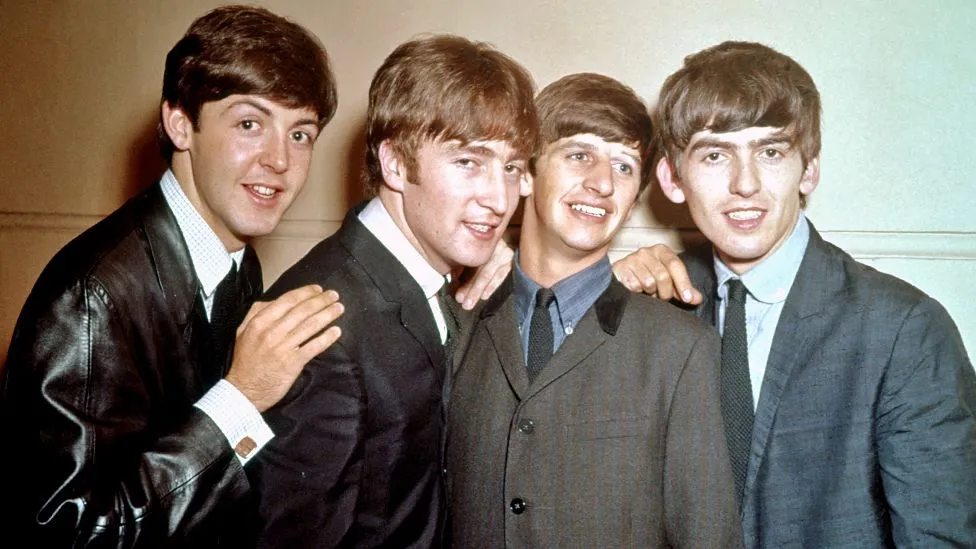How Aretha Franklin became the Queen of Soul

Queen of Soul: this is the title given to the singer and pianist Aretha Franklin, who was born in Memphis on March 25, 1942. She earned this reputation due to her great success at the height of soul music in the 1960s and early 1970s and her extraordinary vocal abilities. In 1987, she was the first woman to be inducted into the Rock and Roll Hall of Fame. In 1990, she won the Grammy Living Legends Award.
Like many exceptional musicians, Aretha came into contact with music at a very early age through her parents' house. Her father, Cecil L. Franklin, was one of the most famous Baptist preachers in the U.S. in the post-war period. The family has been living in Detroit since 1948.
The great soul and gospel musicians are frequent guests there. They attend Father Franklin's nationally renowned church services. Among them are Mahalia Jackson, Sam Cooke, Clara Ward and the Ward Sisters (with Marion Williams) and James Cleveland, from whom Aretha receives singing and piano lessons.
Her father recorded more than 60 albums of his sermons at JVB and Chess. At the age of 14, Aretha was allowed to sing her first record for Chess. Four years later, she went to New York, where she recorded seven LPs for Columbia, which sold with moderate success.
Stylistically, the recordings range from blues, jazz, popular standards and soul. After all, “Today I Sing The Blues”, “Won't Be Long” and “Operation Heartbreak” made it into the top ten of the R'n'B charts. Unfortunately, however, the recordings are so overproduced that Franklin's vocal abilities do not really come into their own.
In 1967, Aretha Franklin terminated her contract with Columbia in frustration and went on to work with Atlantic Records in the following years. She was initially supposed to start recording at Stax Studios, but the Memphis-based label was unwilling to make any financial advances.
She then went to Fame Studios in Muscle Shoals, where she recorded the song “I Never Loved a Man (The Way I Loved You)” with renowned R&B musicians. However, a dispute then arose between the studio owner and Franklin's manager and husband, Ted White. Jerry Wexler, the man in charge at Atlantic, quickly shipped everyone to New York, where they made further recordings.
Aretha Franklin finally releases her own songs, on which she plays the piano and showcases her vocal abilities. Her improvisational talent, coupled with the technical possibilities of changing dynamics and timbre extremely from one note to the next, with the ability to vary the intonation and an excellent sense of rhythm, she generates an incredible energy. She is now also supported by an excellent band, the intensity of the music lets the listener fly.
Success followed in quick succession. Franklin sold more soul records than anyone else in the late 60s. The first one she recorded was a top ten hit in the US. Other hits followed, including “Do Right Women - Do Right Man”, “Respect”, “Baby I Love You”, “(You Make Me Feel Like) A Natural Women”, “Chain Of Fools” and “(Sweet Sweet Baby) Since You've Been Gone”.
Due to her cover of Otis Redding's “Respect” and her committed appearance, she gained a reputation for standing up for the black civil rights movement in general and for the rights of black women in particular.
Until the early 70s, Aretha Franklin still recorded some excellent pieces, including “Think”, “Rock Steady”, or the hits “Angle” “Until You Come Back To Me (That's What I'm Gonna Do)” and “I'm In Love”. From 1973, her success declined, which was certainly due to the general decline of soul, the poor song material available to her, and perhaps also to her separation from her husband.
In 1980, she signed a new record deal with Arista Records and worked with contemporary producers Luther Vandross and Narda Michael Walden. Commercial success returned. The albums “Aretha”, “Love All The Hurt Way” and “Who's Zoomin' Who” sell quite well and some releases become hits: “Jump To It”, “Get It Right”, “Freeway Of Love” and “Another Night”.
From the middle of the decade, she made a number of recordings with musicians from the contemporary pop scene. Duets were created with Annie Lennox, George Micheal, Elton John, Whitney Houston and even James Brown, with Prince acting as producer. With the 1987 release of “One Lord One Faith One Baptism”, she showed that she was still interpreting gospel and soul exceptionally well.
In the 90s, she released a few new, unremarkable tracks on “What See Is What You Sweat”. But in live performances, she still shows how much musicality and expressiveness she possesses, making a youngster like Kid Rock seem rather empty-handed during a duet with her on VH-1 in April 2001.
In 2003, Franklin released another new album (“So Damn Happy”). On it, she once again engages with the youth of today and combines old soul with the current R'n'B wave. She uses sparse grooves to show what vocal qualities she still possesses.
In the following years, things became noticeably quieter around the soul icon. The Christmas album “This Christmas, Aretha” was released in 2008 on the small label DMI Records. In 2010, the US magazine Rolling Stone named Aretha the best singer in the world. “Aretha: A Woman Falling Out Of Love” hit the shelves in 2011, exclusively at WalMart. It wasn't until 2014 that she returned to the spotlight with ‘Aretha Franklin Sings The Great Diva Classics’ and the Adele cover ‘Rolling In The Deep’.
From 2010, rumors circulated about the singer having cancer, but she never confirmed them herself. In the summer of 2018, reports of Franklin's poor health increased. On August 16, 2018, Aretha Franklin died, surrounded by friends and family, at her home in Detroit.
Mary J. Blige, who has worked with Aretha Franklin on several occasions, aptly sums up the soul singer's significance. “You recognize a heavenly power. You recognize something that God has made. And Aretha is a gift from God. When it comes to expressing herself in song, no one can hold a candle to her. She is the reason why women want to sing.”

